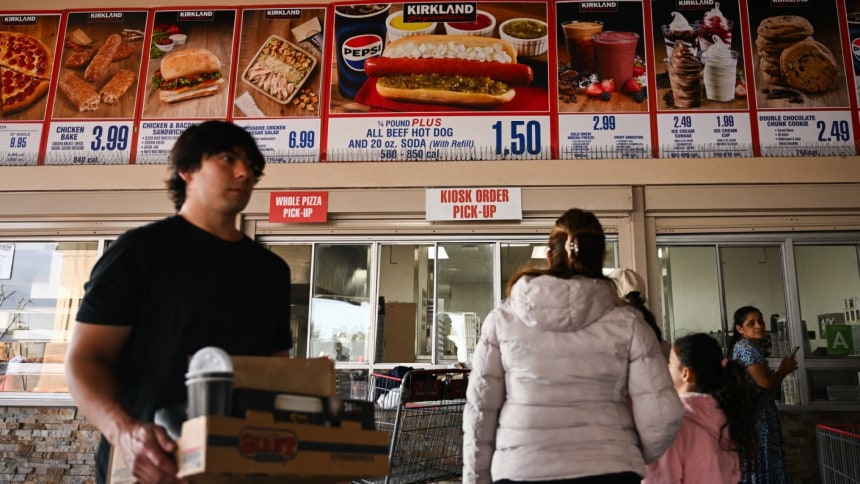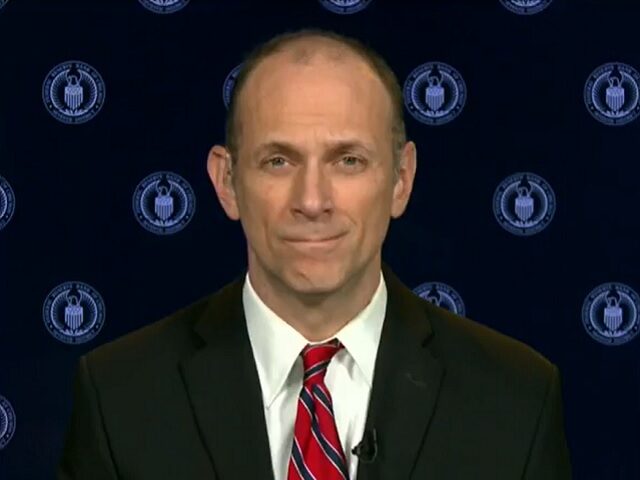from ITM TRADING, INC.
The Fed’s Inflation Fumble Spiked Your Super Bowl Costs
Inflation seems to be taking a time-out, but high prices are here to stay. What will your pizza and beer cost this year?
by Peter C. Earle
The Daily Economy
 With the biggest sporting event of the year approaching, so too does an opportune time to review the prices associated with enjoying that experience — whether in the stadium or among the comforts of home. Like last year, this article will break down costs associated with attending the game in person (ticket prices, travel, and accommodations) as well as the cost of hosting a Super Bowl party at home from food and drinks to energy costs. Those prices are all the more meaningful when viewed in historical context, so changes over the past year and since the pandemic are offered to highlight not only the impact of inflation but shifts in the demand for high-end experiences. One of the unseen costs of inflation is the erosion of traditions and cultural celebrations. We can understand the personal finance implications with some Super Bowl fandom data points.
With the biggest sporting event of the year approaching, so too does an opportune time to review the prices associated with enjoying that experience — whether in the stadium or among the comforts of home. Like last year, this article will break down costs associated with attending the game in person (ticket prices, travel, and accommodations) as well as the cost of hosting a Super Bowl party at home from food and drinks to energy costs. Those prices are all the more meaningful when viewed in historical context, so changes over the past year and since the pandemic are offered to highlight not only the impact of inflation but shifts in the demand for high-end experiences. One of the unseen costs of inflation is the erosion of traditions and cultural celebrations. We can understand the personal finance implications with some Super Bowl fandom data points.
Attending Super Bowl LIX in Person
As Sunday, February 11 approaches, airlines have responded to increased demand by adding flights to New Orleans, leading to elevated airfares. Southwest Airlines has introduced 31 additional flights connecting the championship team cities of Kansas City and Philadelphia to New Orleans, with one-way fares ranging from $384 to $798.
Beneath the Skin of CPI Inflation: Worst Month-to-Month Acceleration of CPI Since August 2023, On Spikes in Used Vehicles, Non-Housing Services, Food, Energy
by Wolf Richter
Wolf Street
 Inflation has been going in the wrong direction relentlessly month-to-month since June.
Inflation has been going in the wrong direction relentlessly month-to-month since June.
Inflation dished out another bad surprise with a big increase in January from December, which wasn’t a surprise because inflation, once it gets going, is known to do that. This time, the hot spots were durable goods, fueled by the continued massive month-to-month increases in used vehicle prices, and non-housing services, such as auto insurance, admissions, subscriptions, etc. Food and energy prices also jumped in January. Rent inflation accelerated. But at least the CPI for apparel and shoes dropped in January.
Inflation Increased in January, Posing Obstacle for Trump Tariff Plans
Consumer prices rose 3% in January compared to a year ago, data showed.
by Max Zahn
ABC News
 Consumer prices rose 3% in January compared to a year ago, ticking up from the previous month and posing an obstacle for Trump administration tariff policies that many economists expect to raise some prices, government data on Wednesday showed. The inflation reading came in higher than economists had predicted.
Consumer prices rose 3% in January compared to a year ago, ticking up from the previous month and posing an obstacle for Trump administration tariff policies that many economists expect to raise some prices, government data on Wednesday showed. The inflation reading came in higher than economists had predicted.
The fresh data extends a bout of resurgent inflation that stretches back to last year. Two weeks ago, the Federal Reserve opted to hold interest rates steady in part out of concern regarding the stubborn price increases.
Egg prices, a closely watched symbol of rising costs, soared 53% in January compared to a year ago. An avian flu has decimated the egg supply, lifting prices higher.
Inflation Rate Picked Up in January, CPI Report Shows. Here’s What it Means for Your Money.
by Aimee Picchi
CBS News
 Inflation accelerated in January, rising 3% on an annual basis, indicating that the Federal Reserve’s push to drive inflation down to a 2% annual rate has stalled out, at least temporarily.
Inflation accelerated in January, rising 3% on an annual basis, indicating that the Federal Reserve’s push to drive inflation down to a 2% annual rate has stalled out, at least temporarily.
By the numbers
The Consumer Price Index was forecast to rise 2.9% last month, according to economists polled by financial-data firm FactSet. The CPI, a basket of goods and services typically bought by consumers, tracks the change in those prices over time.
Inflation Heats Up, Adding Pressure On Trump Over Vow to Lower Prices
A growing chorus of economists say the risks of a broader slowdown are rising.
by Rob Wile
NBC News
 Price growth sped up unexpectedly in January, posing an early challenge to President Donald Trump’s economic agenda.
Price growth sped up unexpectedly in January, posing an early challenge to President Donald Trump’s economic agenda.
Inflation for so-called core items, which exclude volatile food and energy prices, climbed 3.3% over the past 12 months, the Bureau of Labor Statistics reported Wednesday, above economists’ expectations of 3.2%. On a monthly basis, the inflation measure rose 0.4%, exceeding forecasts for 0.3%.
Trump regained the White House vowing to lower prices “immediately,” promising voters on the campaign trail that he’d begin doing so “starting on Day One.” But the president, who is 24 days into his new term, cast blame on his predecessor Wednesday morning, writing on his Truth Social platform, “BIDEN INFLATION UP!”
Strong CPI Means What to Gold?
by Ira Epstein
GoldSeek
 As we take a look at gold, if it were to just close right here, you’d have an all-time high close of $2914. This is a weekly chart of just closing prices, the momentum is still up. The market today had a minor reverse, lost the punch that it had at the top pulling back. But I am expecting to see buying on the pullback, maybe $2900 [that] zone.
As we take a look at gold, if it were to just close right here, you’d have an all-time high close of $2914. This is a weekly chart of just closing prices, the momentum is still up. The market today had a minor reverse, lost the punch that it had at the top pulling back. But I am expecting to see buying on the pullback, maybe $2900 [that] zone.
Gold is becoming a big-time storage of value. Higher lows, higher highs—you can see how the market’s going.
Chicago Fed President: Inflation Numbers ‘Not the Result of Any Policy’ by Trump
by Ian Hanchett
Breitbart.com
 On Wednesday’s broadcast of the Fox News Channel’s “America Reports,” Chicago Federal Reserve Bank president Austan Goolsbee discussed the January inflation report and stated that the numbers are “not the result of any policy of the new administration. We’ve been dealing with inflation that was too high for some years.” And noted that there was a temporary jump in inflation at the start of 2024 as well.
On Wednesday’s broadcast of the Fox News Channel’s “America Reports,” Chicago Federal Reserve Bank president Austan Goolsbee discussed the January inflation report and stated that the numbers are “not the result of any policy of the new administration. We’ve been dealing with inflation that was too high for some years.” And noted that there was a temporary jump in inflation at the start of 2024 as well.
Goolsbee said, “There’s no sense in which the inflation numbers that we got today — which are concerning, though they’re just one month, they are concerning — they’re not the result of any policy of the new administration. We’ve been dealing with inflation that was too high for some years. I joined the Fed about two years ago, the inflation rate was already very high, and we’ve, at the Fed, been spending our time trying to get it down.”
Inflation, Prices Jump as Trump Ignores ‘Real Americans.’ What About America First? | Opinion
Inflation hit a seven-month high in January, and consumer prices saw their biggest rise on a monthly basis since August 2023.
[Ed. Note: It’s amusing… The same publications that denied the inflation existed under Biden now acknowledge the inflation… AND it Trump’s fault. Okay. Legitimate journalism happens here, apparently.]
by Rex Huppke
USA Today
When news broke Wednesday that inflation and food prices went up in January, President Donald Trump wasted no time taking personal responsibility and vowing to focus solely on making life better for all Americans.
HAH! Just kidding. He posted “BIDEN INFLATION UP!” on social media and then presumably went back to planning the Trump-branded hotel and casinos I imagine he wants to build in Gaza once he’s ethnically cleansed the region.
The man who claims to care deeply about “real Americans” and “the forgotten men and women of our country” swore up and down that he would fix inflation and food prices “from the day I take the oath of office.”
Consumer Price Report Wednesday Expected to Show Inflation Isn’t Going Away
The outlook for the January CPI calls for a monthly increase of 0.3% for the all-items index and a 12-month inflation rate of 2.9%. Core readings are projected at 0.3% and 3.1%, respectively.
by Jeff Cox
CNBC.com
 The January consumer price index report is likely to tell a familiar story: another month, another expected miss for inflation as it relates to the Federal Reserve’s goal, with concerns aplenty about what happens from here.
The January consumer price index report is likely to tell a familiar story: another month, another expected miss for inflation as it relates to the Federal Reserve’s goal, with concerns aplenty about what happens from here.
So instead of looking for hope from the headline readings, which aren’t expected to change much from December, markets will pore through the details for trends that could shed some hope that the Fed eventually will be able to start lowering rates again.
“Inflation is stuck above target, with risks skewed to the upside, activity is strong, and the labor market appears to have stabilized around full employment,” Bank of America economist Stephen Juneau said in a note. “If our January CPI forecast is correct, the case for the Fed to stay on hold will strengthen further.”
Treasury Market’s Inflation Expectations Become “Unanchored”
by Wolf Richter
Wolf Street
 Why the Fed vigorously backpedaled on further rate cuts and pivoted to wait-and-see: Long-term interest rates matter.
Why the Fed vigorously backpedaled on further rate cuts and pivoted to wait-and-see: Long-term interest rates matter.
Fed Chair Powell, at his testimony before the Senate Committee on Banking, Housing, and Urban Affairs today, included his nearly standard line about longer-term inflation expectations being “well anchored, as reflected in a broad range of surveys of households, businesses, and forecasters, as well as measures from financial markets.” The first three are survey-based – what households, businesses, and forecasters see coming at them. The last is based on trading results in the Treasury market, what the Treasury market sees coming at it. It’s the bond market talking here, and the bond market is getting worried again about inflation.
